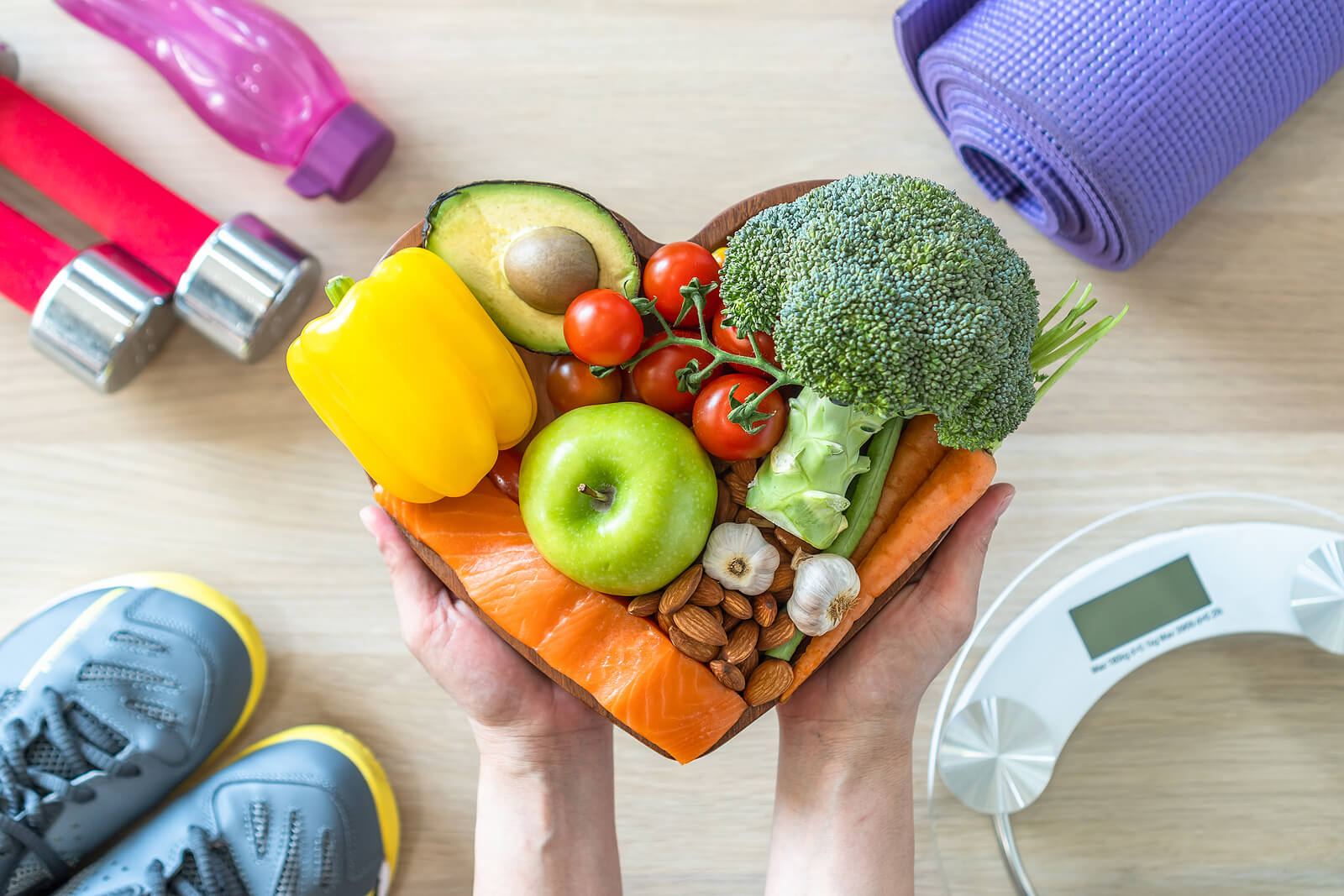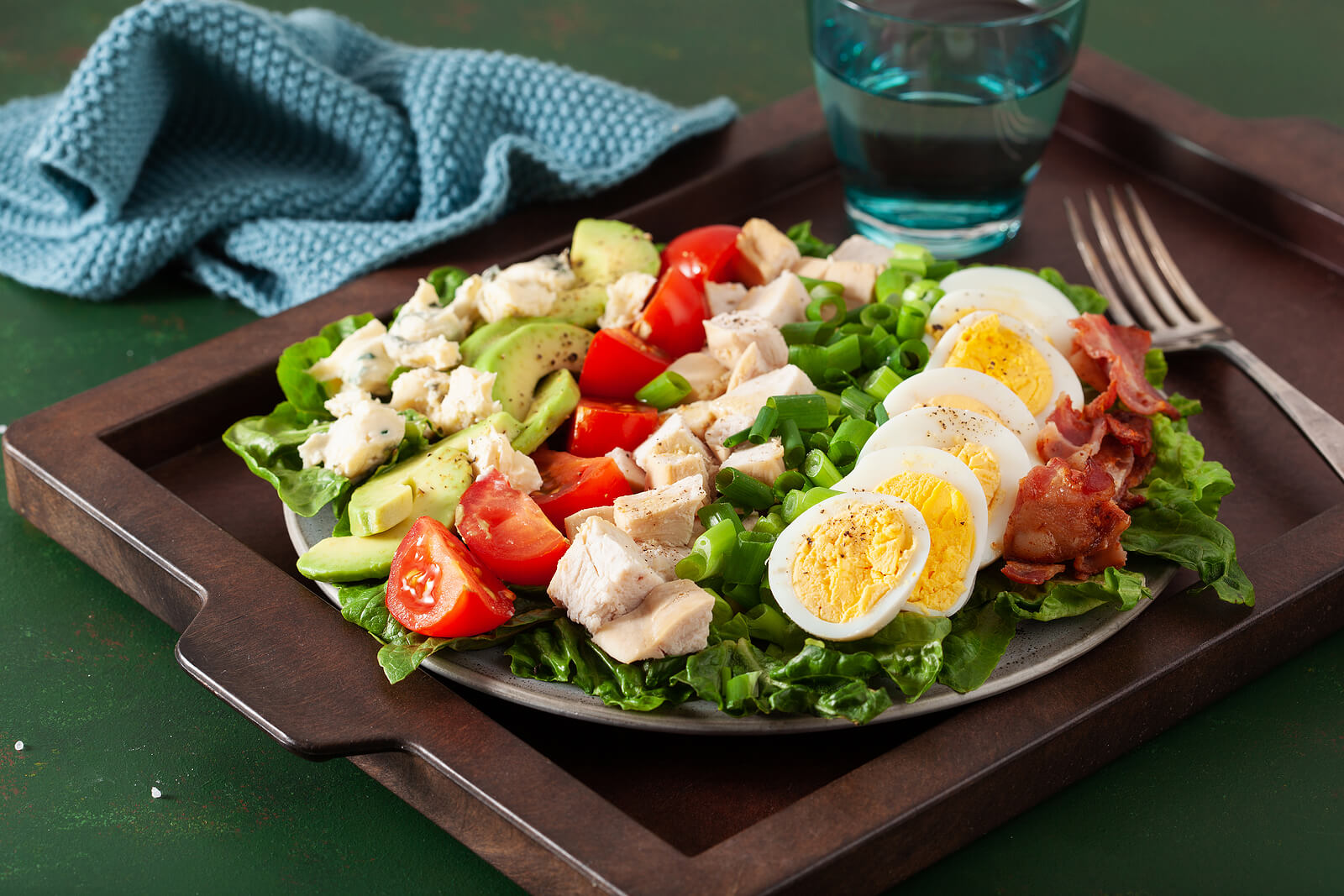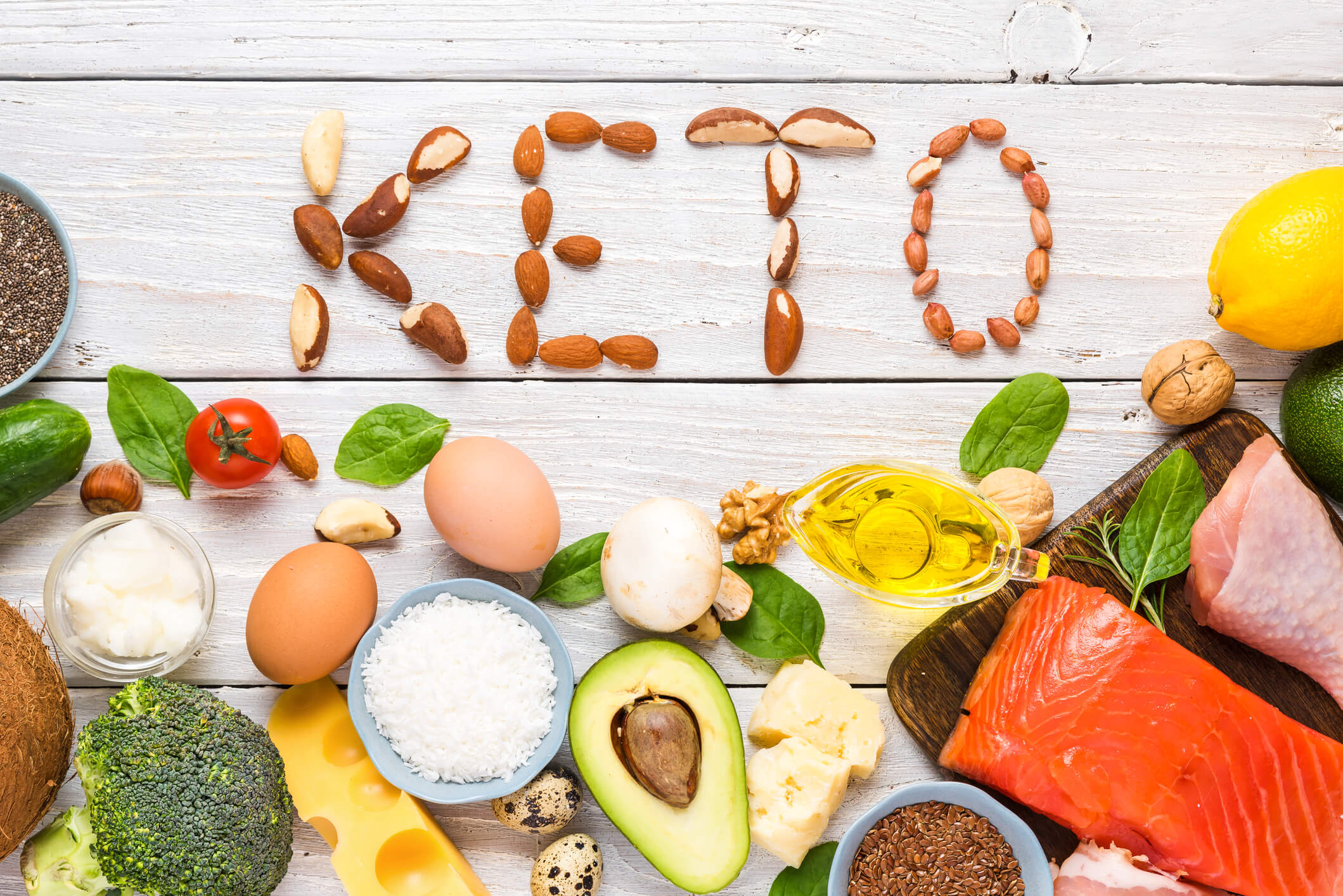If you’re looking to build your abs, you may be wondering if the keto diet can help you achieve your goals. The keto diet is a high-fat, low-carb diet that has gained popularity in recent years for its potential weight loss benefits. But can it also help you build strong, defined abs?
The answer is yes, it’s possible to build abs with a keto diet. In fact, the keto diet may even be more effective than other diets for building abs, as it can help reduce overall body fat, which is key for revealing your abs. When you’re in a state of ketosis, your body burns fat for fuel instead of carbohydrates, which can help you shed excess body fat and reveal your abs. Additionally, the high-fat content of the keto diet can help you feel fuller for longer, which may help you stick to your diet and avoid overeating.
However, it’s important to note that simply following a keto diet won’t automatically give you six-pack abs. Building strong, defined abs requires a combination of a healthy diet, regular exercise, and a targeted ab workout routine. While the keto diet can be a helpful tool in your abs-building arsenal, it’s not a magic solution. With dedication and consistency, however, you can use the keto diet to help you achieve your ab-building goals.
Understanding the Keto Diet
If you’re looking to build abs, the ketogenic diet may be an effective way to achieve your goals. The keto diet is a low-carb, high-fat diet that has been shown to promote weight loss and improve overall health. Here’s what you need to know about the keto diet and how it can help you build abs.
Ketosis and Its Role
The keto diet works by putting your body into a state of ketosis, which is a metabolic state where your body burns fat for fuel instead of carbohydrates. When you eat a low-carb, high-fat diet, your body produces ketones, which are molecules that are used for energy instead of glucose. This process can help you burn fat more efficiently and may lead to weight loss.
High Fat, Low Carb Intake
The keto diet is characterized by a high fat intake, moderate protein intake, and low carb intake. This macronutrient ratio helps to keep your body in a state of ketosis and promotes fat burning. Some of the foods that are typically included in a keto diet include:
- Fatty meats (such as beef, pork, and lamb)
- High-fat dairy products (such as cheese and butter)
- Nuts and seeds
- Avocado
- Low-carb vegetables (such as spinach, broccoli, and cauliflower)
Impact on Blood Sugar and Insulin Levels
One of the benefits of the keto diet is that it can help to regulate blood sugar and insulin levels. When you eat a high-carb diet, your body produces large amounts of insulin to help regulate your blood sugar levels. However, this can lead to insulin resistance, which can cause weight gain and other health problems. By reducing your carb intake, you can help to regulate your blood sugar and insulin levels, which may promote weight loss and improve overall health.
Overall, the keto diet can be an effective way to build abs and promote weight loss. By understanding the principles of the keto diet and making healthy food choices, you can achieve your fitness goals and improve your overall health.
Nutritional Aspects of the Keto Diet
When it comes to building abs with a keto diet, it’s important to understand the nutritional aspects of this low-carb, high-fat diet. Here are some key points to keep in mind:
Proteins and Healthy Fats
Protein is an essential nutrient for building and repairing muscle tissue, and it’s important to consume enough of it on a keto diet. Good sources of protein include fish, meat, cheese, and eggs. Healthy fats are also a crucial part of the keto diet, as they provide energy and help keep you feeling full. Examples of healthy fats include avocados, olive oil, and fatty fish.
Carbohydrates and Sugar
Carbohydrates and sugar are restricted on a keto diet, as they can cause insulin spikes and interfere with fat burning. It’s important to limit your carb intake to around 20-50 grams per day, depending on your individual needs and goals.
Fiber and Hydration
Fiber is important for maintaining healthy digestion and preventing constipation on a keto diet. Good sources of fiber include leafy greens, spinach, and other non-starchy vegetables. It’s also important to stay hydrated by drinking plenty of water and other low-carb beverages.
Overall, a well-planned keto meal plan can provide all the necessary nutrients, including proteins, healthy fats, and amino acids, while keeping carb and sugar intake low. By following a balanced and nutritious keto diet, you can build abs and improve your overall health and metabolism.
Building Abs with the Keto Diet
If you are looking to build abs while following a keto diet, it is important to understand that diet alone won’t do the trick. While the keto diet can help you lose weight and reduce body fat, you need to combine it with the right exercise regimen to build abs. This section will cover the importance of exercise, strength and endurance training, and workouts for abs.
Importance of Exercise
Regular exercise is essential for building abs. It helps to burn calories and fat, increase muscle growth, and improve overall health. Exercise also helps to strengthen your core, which is essential for building abs.
Strength and Endurance Training
Strength and endurance training are both important for building abs. Strength training helps to build muscle, which in turn helps to burn fat and increase metabolism. Endurance training, on the other hand, helps to improve cardiovascular health, which is important for overall health and fitness.
Workouts for Abs
There are several workouts that can help you build abs. Some of the most effective ones include:
- Planks: Planks are a great way to strengthen your core and build abs. To do a plank, get into a push-up position, but instead of lowering yourself to the ground, hold yourself up on your forearms and toes. Keep your body straight and hold the position for as long as you can.
- HIIT: High-intensity interval training (HIIT) is a great way to burn fat and build muscle. HIIT involves short bursts of intense exercise followed by periods of rest. This type of workout can help you build abs and improve overall fitness.
- Ab workouts: There are several workouts that specifically target the abs, such as crunches, sit-ups, and leg raises. These exercises can help to build abs, but it is important to do them consistently and with proper form.
In summary, building abs with a keto diet requires a combination of diet and exercise. Regular exercise, including strength and endurance training, is essential for building abs. Workouts that specifically target the abs, such as planks and ab workouts, can also be effective. Remember to be consistent with your workouts and maintain proper form to avoid injury and maximize results.
Weight Loss and Body Composition
When it comes to building abs, weight loss and body composition are important factors to consider. A ketogenic diet can be an effective way to lose weight and improve body composition.
Calorie Intake and Weight Loss
To lose weight, you need to consume fewer calories than you burn. This is known as a calorie deficit. A ketogenic diet can help you achieve a calorie deficit by reducing your appetite and increasing your metabolism. By limiting your carbohydrate intake and increasing your fat intake, your body enters a state of ketosis, where it burns fat for energy instead of glucose. This can lead to weight loss.
Role of Ketogenic Diet in Obesity
Obesity is a major risk factor for many health problems, including heart disease, diabetes, and certain cancers. A ketogenic diet can be an effective way to lose weight and improve body composition in obese individuals. In fact, a study published in the Journal of Clinical Endocrinology & Metabolism found that a very low-calorie ketogenic diet-induced weight loss mainly at the expense of fat mass and visceral mass, while preserving muscle mass and strength.
Impact on Body Composition
Body composition refers to the proportion of fat, muscle, and other tissues in your body. A ketogenic diet can improve body composition by reducing body fat and preserving muscle mass. In a study published in the Journal of Nutrition and Metabolism, semi-professional soccer players who followed a ketogenic diet for 30 days experienced a significant reduction in body fat and an increase in muscle strength.
In summary, a ketogenic diet can be an effective way to lose weight and improve body composition, which are important factors in building abs. By reducing your calorie intake and entering a state of ketosis, you can achieve a calorie deficit and burn fat for energy. This can lead to weight loss and improved body composition.
Potential Side Effects and Remedies
When starting a keto diet, some people may experience side effects commonly known as “keto flu.” This may include symptoms such as fatigue, headaches, and brain fog. These symptoms are usually temporary and can be managed with a few remedies.
Keto Flu and Fatigue
Keto flu and fatigue are common side effects of starting a keto diet. This is because your body is transitioning from using glucose as its primary source of energy to using ketones. To combat these symptoms, make sure you are getting enough electrolytes, such as sodium, potassium, and magnesium. You can do this by adding salt to your food, eating magnesium-rich foods like spinach and nuts, and taking supplements if needed.
Another remedy is to gradually decrease your carbohydrate intake instead of cutting them out completely. This can help your body adjust to the new diet and reduce the severity of the symptoms.
Managing Hunger and Appetite
One of the benefits of a keto diet is that it can help reduce hunger and appetite. However, some people may experience increased hunger at the beginning of the diet. To manage this, make sure you are eating enough protein and healthy fats. Protein can help keep you feeling full, and healthy fats can provide sustained energy.
It’s also important to listen to your body and eat when you’re hungry. Don’t try to restrict your calories too much, as this can lead to increased hunger and cravings.
Dealing with Cravings
Cravings for bread, candy, soda, and cookies can be a challenge when starting a keto diet. To manage these cravings, try finding keto-friendly alternatives. For example, you can make bread with almond flour or coconut flour, or satisfy your sweet tooth with sugar-free desserts made with natural sweeteners like stevia or erythritol.
Another remedy is to distract yourself when cravings strike. Go for a walk, call a friend, or do something else to take your mind off food. Remember that cravings are usually temporary and will pass.
By following these remedies, you can manage the potential side effects of a keto diet and enjoy the benefits of improved health and a leaner body.
Role of Supplements in a Keto Diet
Supplements can play an important role in a Keto diet by filling any nutritional gaps and supporting your body during the transition to ketosis. In this section, we’ll explore the benefits of supplements and how to choose the right supplement for your needs.
Benefits of Supplements
Supplements can provide a range of benefits for those following a Keto diet. Here are a few of the key benefits to consider:
- Filling Nutritional Gaps: A Keto diet can be restrictive, and it can be challenging to get all the nutrients your body needs from food alone. Supplements can help fill any nutritional gaps and ensure you’re getting all the vitamins and minerals you need.
- Boosting Energy Levels: When you first start a Keto diet, you may experience fatigue and low energy levels. Supplements like caffeine or green tea extract can help boost your energy levels and keep you feeling alert.
- Supporting Digestion: A Keto diet can be high in fat, which can be challenging for some people to digest. Supplements like digestive enzymes can help support your digestion and prevent discomfort.
- Enhancing Athletic Performance: If you’re an athlete or exercise regularly, supplements like creatine can help enhance your performance and support muscle growth.
Choosing the Right Supplement
When choosing a supplement for your Keto diet, it’s essential to consider your specific needs and goals. Here are a few tips to help you choose the right supplement:
- Research the Supplement: Before taking any supplement, do your research and make sure it’s safe and effective. Look for studies that support its use and check for any potential side effects.
- Consider Your Nutritional Needs: Think about the nutrients you may be missing in your Keto diet and choose a supplement that can help fill those gaps. For example, if you’re not getting enough fiber, consider taking a fiber supplement.
- Watch Your Balance: It’s essential to maintain a balance of nutrients in your diet, so be careful not to overdo it on any one supplement. Too much of a good thing can be harmful, so follow the recommended dosage guidelines.
- Choose High-Quality Supplements: Look for supplements that are high-quality and free from harmful additives. Choose reputable brands and read reviews from other users to ensure you’re getting a safe and effective supplement.
In conclusion, supplements can play an important role in a Keto diet by filling nutritional gaps, boosting energy levels, supporting digestion, and enhancing athletic performance. When choosing a supplement, consider your specific needs and goals, research the supplement, and choose high-quality options.
Keto Diet and Other Health Conditions
If you have certain health conditions, you may wonder if a keto diet is safe for you. Here are some things to consider:
Epilepsy and Keto Diet
The keto diet was originally developed as a treatment for epilepsy in children. Research has shown that it can be effective in reducing the frequency of seizures in some people with epilepsy. If you have epilepsy, talk to your doctor before starting a keto diet. They may recommend a modified version of the diet that is specifically tailored to your needs.
Parkinson’s, Alzheimer’s and Keto Diet
There is some evidence to suggest that a keto diet may be beneficial for people with Parkinson’s and Alzheimer’s disease. However, more research is needed to confirm these findings. If you have Parkinson’s or Alzheimer’s, talk to your doctor before starting a keto diet.
Impact on Cholesterol and Triglyceride Levels
Some people worry that a high-fat diet like keto may raise their cholesterol and triglyceride levels, which can increase the risk of heart disease. However, research has shown that a keto diet can actually improve cholesterol and triglyceride levels in some people. It may lower LDL (bad) cholesterol while increasing HDL (good) cholesterol. However, more research is needed to confirm these findings.
If you have high cholesterol or triglyceride levels, talk to your doctor before starting a keto diet. They may recommend monitoring your levels closely and adjusting your diet as needed.
Overall, a keto diet may be safe and effective for some people with certain health conditions. However, it’s important to talk to your doctor before starting the diet to make sure it’s right for you.
Incorporating Intermittent Fasting
Understanding Intermittent Fasting
Intermittent fasting (IF) is a dietary approach that involves cycling between periods of fasting and eating. The idea behind IF is to restrict the time you eat during the day to a specific window of time, which typically ranges from 4 to 8 hours. This means that you consume all of your daily calories within this time frame and then fast for the remaining hours of the day.
There are several popular methods of intermittent fasting, including the 16/8 method, the 5:2 method, and the alternate-day fasting method. Each method has its own unique approach to fasting and eating, but they all share the same basic principle of restricting the time you eat during the day.
IF has been shown to have several health benefits, including improved insulin sensitivity, reduced inflammation, and increased fat loss. It can also help you build lean muscle mass, which is essential for building abs.
Combining Keto Diet and Intermittent Fasting
Combining the keto diet with intermittent fasting can be an effective way to build abs. The keto diet is a high-fat, low-carb diet that puts your body in a state of ketosis, where it burns fat for fuel instead of glucose. This can help you lose weight and build lean muscle mass, which is essential for building abs.
To incorporate IF with the keto diet, you should aim to eat all of your daily calories within a specific window of time, typically 4 to 8 hours. During this time frame, you should focus on consuming high-fat, low-carb foods that are rich in protein and other essential nutrients.
When it comes to macronutrients, you should aim to consume around 70% of your daily calories from healthy fats, 25% from protein, and 5% from carbohydrates. This will help you stay in a state of ketosis, which is essential for building lean muscle mass and burning fat.
It’s important to note that combining the keto diet with intermittent fasting can be challenging, especially if you’re new to both dietary approaches. It’s important to consult with a healthcare professional or a registered dietitian before starting any new diet or exercise program.
In conclusion, incorporating intermittent fasting with the keto diet can be an effective way to build abs. By restricting the time you eat during the day and focusing on consuming high-fat, low-carb foods, you can put your body in a state of ketosis and build lean muscle mass. However, it’s important to consult with a healthcare professional or a registered dietitian before starting any new diet or exercise program.
Conclusion
In conclusion, building abs with a keto diet is possible, but it requires a combination of proper nutrition, consistent exercise, and patience. The keto diet can be an effective way to reduce body fat, which is essential for revealing your abs. However, it’s important to note that spot reduction is not possible, and you cannot target fat loss in specific areas of your body.
To build abs, you need to engage in exercises that target your abdominal muscles, such as crunches, planks, and leg raises. In addition to these exercises, you should also engage in full-body strength training to build overall muscle mass and increase your metabolism.
When it comes to nutrition, the keto diet can be beneficial for reducing body fat, but it’s important to make sure you’re getting enough protein to support muscle growth. You should also focus on consuming healthy fats and avoiding processed foods and sugary drinks.
It’s important to remember that building abs takes time and consistency. You may not see results immediately, but if you stick to a consistent exercise routine and a healthy diet, you will eventually see progress. Don’t get discouraged if you don’t see results right away, and keep working towards your goals.
Overall, building abs with a keto diet is possible, but it requires a combination of proper nutrition and consistent exercise. By following a healthy diet and engaging in targeted exercises, you can build strong, defined abs that you can be proud of.
Frequently Asked Questions
What is the best diet for building abs?
The best diet for building abs is one that is high in protein, low in carbs, and moderate in healthy fats. This type of diet can help to reduce body fat and promote muscle growth, which are both important for building strong, defined abs.
Can a keto diet help build abs?
Yes, a keto diet can help build abs. By reducing carb intake and increasing healthy fat and protein consumption, a keto diet can help to reduce body fat and promote muscle growth, which are both important for building strong, defined abs.
How long does it take to see results for abs on a keto diet?
The time it takes to see results for abs on a keto diet can vary depending on a number of factors, including your current body fat percentage, your exercise routine, and your overall diet. However, with consistent effort and discipline, you can start to see results within a few weeks to a few months.
Is it possible to get abs without consuming carbs?
Yes, it is possible to get abs without consuming carbs. While carbs can be an important source of energy for the body, they are not essential for building strong, defined abs. By following a diet that is high in protein and healthy fats, you can still achieve your goal of building strong, defined abs.
What is the recommended daily carb intake for building abs?
The recommended daily carb intake for building abs can vary depending on a number of factors, including your body weight, activity level, and overall diet. However, a good starting point is to aim for around 20-50 grams of carbs per day, which is the typical range for a keto diet.
Are there any specific keto meal plans for building abs?
Yes, there are many specific keto meal plans that can help you build strong, defined abs. These meal plans typically focus on high-protein, low-carb foods such as lean meats, fish, eggs, and leafy greens. Some popular keto meal plans for building abs include the “ketogenic diet,” “cyclical keto diet,” and “targeted keto diet.






Leave a Reply